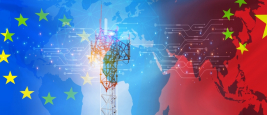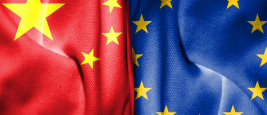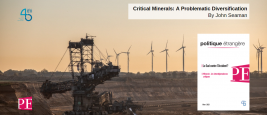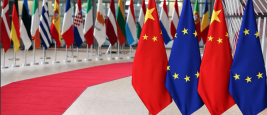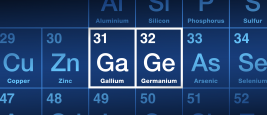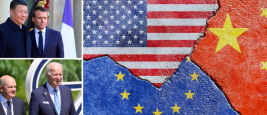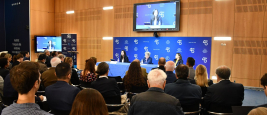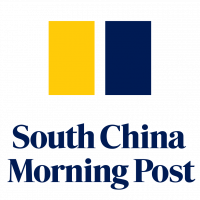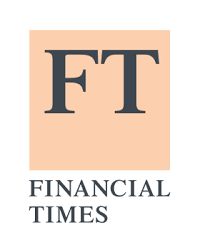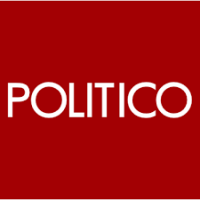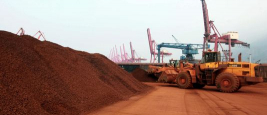
John SEAMAN
Research Fellow, Center for Asian Studies
Research Interests:
- Europe-China relations
- U.S.-China relations
- China's energy transition
- Geoeconomics and economic security
- Critical raw materials (esp. Rare Earth Elements)
- Technical standardization
John Seaman is a Research Fellow in Ifri’s Center for Asian Studies, which he joined in 2009. He holds a Master in International Affairs from Sciences Po, Paris, a Bachelor of Arts in International Economics from Seattle University, studied as a NSEP David L. Boren Scholar at the Beijing Center for Chinese Studies (2002-03), and worked at the U.S. Mission to NATO (2004-2005). He coordinates Ifri’s participation in a number of European research networks on China, including as a co-founder and coordinator the European Think-tank Network on China (ETNC) and a core participant in the Digital Power China (DPC) and ReConnect China (Horizon Europe) consortiums. From 2013 to 2018 he was a non-resident International Research Fellow and twice a Visiting Fellow with the Energy and Environment Program of the Canon Institute for Global Studies (CIGS) in Tokyo.
The concept of “de-risking” has become a significant focus for the European Union (EU) in managing its relations with China since first proposed by European Commission President Ursula von der Leyen in March 2023. However, the interpretation and policy responses to de-risking vary across...
In adapting to growing geopolitical competition over digital technology, the EU and the UK are striving for economic security and technological sovereignty. European policies focus on reducing critical over-dependencies on China. This de-risking is a necessary process of adaptation to the new...
As the European Union (EU) prepares for a new round of parliamentary elections, how should the bloc consider its strategy towards China?
Faced with the boom in demand for metal resources generated by the latest technology, the United States and Europe have been forced to revise the geography of their supply networks, which is synonymous with strategic dependency.
While there is now new momentum in the relationship between Europe and China, considerable variation remains in approaches across the continent, from clear-cut strategies to more ambiguous policies, complicating a common European position.
China’s recent announcement of raw material export controls highlights important pitfalls of weaponized interdependence and demonstrates that not all chokepoints are created equal.
Transatlantic ties have had a rough go in recent months. After an unprecedented degree of alignment on Russia in the first half of 2022, including the quick and efficient rollout of a series of groundbreaking sanctions packages, the United States and Europe stepped back into dispute territory...
As French President Emmanuel Macron (accompanied by Ursula von der Leyen) is on a state visit to China, some twenty Ifri researchers decipher the stakes of the U.S./China/Europe strategic triangle.
The idea that Europe has grown dependent on China is now a common refrain, but just how is this notion understood in capitals across the continent?
Annual conference of Ifri's Center for Asian Studies. The war in Ukraine has marked the return of high-intensity conflict in Europe and represents a profound, structural shift in the region’s strategic environment. It also takes place against a backdrop of a decades-long...
Prime Minister Narendra Modi’s visit to France on May 4 is his fifth since 2015, and the 10th such high-level bilateral visit.
The rise of the so-called ‘wolf warriors’ heralds a more aggressive approach to promoting the country’s official line. Analysts warn this is likely to harm the country’s image even if their careers benefit as a result.
Critics fear Germany could put European unity on the line. Angela Merkel will have to tread carefully on her visit to China this week to avoid tripping over Hong Kong and stepping on Germany’s car industry. Angela Merkel will have to tread carefully on her visit to China this week to...
China believes its near-monopoly gives it leverage over the US but supply cuts would spur rival producers.
Growing tensions between China and the United States over the escalating trade dispute – and the resulting global uncertainty – are forcing other countries to choose between the two economic superpowers.
Mapping Europe-China Relations: A bottom-up approach -- a recent report of the European Think-tank Network on China (
John Seaman answers questions from the China Daily on the recently concluded negotiations of the Trans-Pacific Partnership (TPP) and their consequences for China and for Europe.
...While China may be setting the bar high for itself in it's commitments for the COP21 climate negotiations this December, these ultimately serve to foster necessary progress on environmental issues and economic...
L'empire du Milieu est-il sur le point de relâcher la pression sur le marché stratégique des terres rares ? C'est ce que pourrait laisser penser l'annonce du gouvernement chinois, mercredi 22 août, d'augmenter ses quotas d'exportation de ces dix-sept métaux indispensables...






